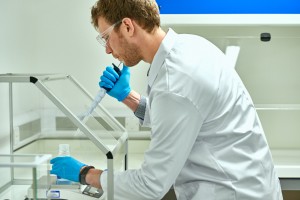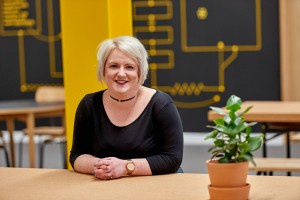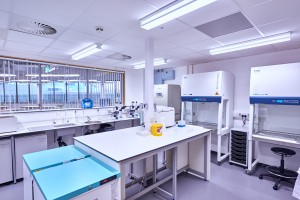Future Space, Bristol’s first science and tech hub, contributed more than £2m to the regional economy within its first year, new figures reveal.
The innovation centre, which was the first flexible office space in Bristol to also offer private and shared laboratory space to start-up R&D-heavy enterprises, exceeded all its targets for its first 12 months of operation, with occupancy at 68% by the end of 2017. 
Companies based at Future Space raised more than £10m in funding between August 2016 and July 2017 and created four new patents, the figures show.
A total of 25 jobs were generated by the client companies, taking the total number of people employed within Future Space to 145 within the first 12 months.
It has also had significant interest from foreign companies with Tmsuk, one of Japan’s leading robotic companies, setting up in the centre to market its robotic wheelchair to the European market and to develop new partners for research and development.
Part of UWE Bristol, Future Space provides shared and private laboratory, workshops and office space along with business support services and has received a 93% customer satisfaction rating.
Three quarters of the companies at Future Space, which is managed by Oxford Innovation, have engaged with UWE Bristol, working with researchers, students and graduates, while 45% have been working with one another – demonstrating its strong networking potential.
Future Space centre director Elaine McKechnie, pictured, said: “We are really pleased and proud to see so many amazing companies growing and developing under the Future Space roof. 
“Our aim at Future Space is to provide a flexible working environment where science and tech companies can base themselves while they carry out the research or development work necessary to attract major funding or set up lab space of their own.
“We want to encourage the wealth of talent coming out of Bristol and Bath’s universities and tech cluster to stay in this region while also attracting dynamic businesses from further afield in the UK and overseas.”
The turnover of Future Space client companies averaged more than £600,000 by the end of the first year.
Reach Robotics, creators of augmented reality gaming robot Mekamon, was an early Future Space success story. Set up by UWE Bristol robotics graduate Silas Adekunle, Chris Beck and John Rees and originally based at the neighbouring Bristol Robotics Laboratory, Reach Robotics moved to Future Space in August 2016.
During 15 months at Future Space, Reach was able to grow its team, test and develop its robots and prepare for investment without the distraction of running its own office building. Having secured $9.5m (£5.8m) from overseas investors, Reach needed to scale up and moved to its own premises in the nearby Bristol Business Park last November – the same week it launched its robots in Apple stores.
Another success story, Cerberus Security Laboratories, which specialises in semi-conductors and cyber security, moved to Future Space in January last year and has developed close links with UWE Bristol cyber security experts.
Co-founders Andrew Lindsay said: “Future Space originally sparked our interest due to its location but we have been continually surprised by the range of benefits from being based here.
“The facilities are fantastic for hi-tech start-ups and there is a real buzz having an ever-increasing number of companies arriving. We have been very impressed with the added benefits of being based in an Oxford Innovation centre, in the few months we have been here we have made clear savings using the centre’s contacts for legal services and R&D tax credits.
“We expected that our links with UWE would take some time to evolve but, thanks to UWE’s presence in Future Space, this has been greatly accelerated and we expect fruitful cooperation within our first six months of residence.”
UWE Pro Vice-Chancellor for Research and Enterprise Martin Boddy said: “Future Space is further enhancing UWE’s great reputation for fostering business development and enterprise.
“The businesses that have moved there have had access to the sorts of academic expertise, business support and facilities that would usually be very tricky for start-ups. There is the added advantage of being able to tap in to Bristol’s student talent pool.
“We’re really delighted to see that so many exciting companies are benefitting from this amazing facility and so many of them working closely with our staff and students.”






























